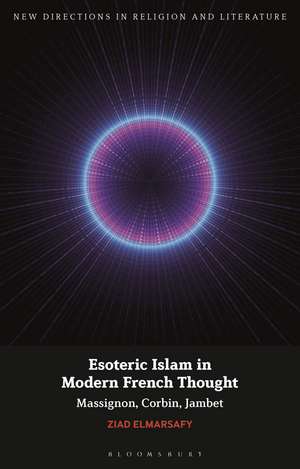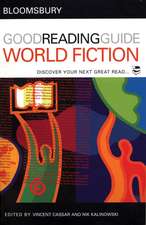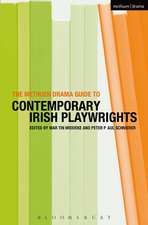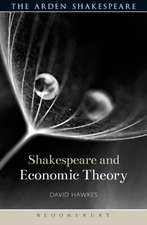Esoteric Islam in Modern French Thought: Massignon, Corbin, Jambet: New Directions in Religion and Literature
Autor Professor Ziad Elmarsafyen Limba Engleză Paperback – 27 iul 2022
| Toate formatele și edițiile | Preț | Express |
|---|---|---|
| Paperback (1) | 195.56 lei 6-8 săpt. | |
| Bloomsbury Publishing – 27 iul 2022 | 195.56 lei 6-8 săpt. | |
| Hardback (1) | 469.92 lei 3-5 săpt. | +21.37 lei 7-13 zile |
| Bloomsbury Publishing – 27 ian 2021 | 469.92 lei 3-5 săpt. | +21.37 lei 7-13 zile |
Din seria New Directions in Religion and Literature
-
 Preț: 192.27 lei
Preț: 192.27 lei - 30%
 Preț: 509.20 lei
Preț: 509.20 lei - 30%
 Preț: 509.86 lei
Preț: 509.86 lei - 30%
 Preț: 510.03 lei
Preț: 510.03 lei -
 Preț: 176.86 lei
Preț: 176.86 lei - 21%
 Preț: 215.96 lei
Preț: 215.96 lei - 14%
 Preț: 175.91 lei
Preț: 175.91 lei - 30%
 Preț: 566.83 lei
Preț: 566.83 lei - 23%
 Preț: 190.87 lei
Preț: 190.87 lei - 21%
 Preț: 217.35 lei
Preț: 217.35 lei - 24%
 Preț: 195.37 lei
Preț: 195.37 lei - 23%
 Preț: 254.55 lei
Preț: 254.55 lei - 14%
 Preț: 176.44 lei
Preț: 176.44 lei - 24%
 Preț: 188.55 lei
Preț: 188.55 lei - 12%
 Preț: 215.88 lei
Preț: 215.88 lei - 14%
 Preț: 196.96 lei
Preț: 196.96 lei - 23%
 Preț: 192.55 lei
Preț: 192.55 lei - 14%
 Preț: 183.70 lei
Preț: 183.70 lei - 23%
 Preț: 191.38 lei
Preț: 191.38 lei - 23%
 Preț: 254.02 lei
Preț: 254.02 lei - 14%
 Preț: 176.86 lei
Preț: 176.86 lei - 23%
 Preț: 254.55 lei
Preț: 254.55 lei - 14%
 Preț: 164.59 lei
Preț: 164.59 lei - 24%
 Preț: 190.33 lei
Preț: 190.33 lei - 13%
 Preț: 229.86 lei
Preț: 229.86 lei - 30%
 Preț: 508.95 lei
Preț: 508.95 lei - 30%
 Preț: 540.54 lei
Preț: 540.54 lei -
 Preț: 176.44 lei
Preț: 176.44 lei - 23%
 Preț: 235.00 lei
Preț: 235.00 lei
Preț: 195.56 lei
Preț vechi: 256.67 lei
-24% Nou
Puncte Express: 293
Preț estimativ în valută:
37.42€ • 39.17$ • 30.96£
37.42€ • 39.17$ • 30.96£
Carte tipărită la comandă
Livrare economică 05-19 aprilie
Preluare comenzi: 021 569.72.76
Specificații
ISBN-13: 9781350200180
ISBN-10: 1350200182
Pagini: 192
Dimensiuni: 138 x 216 mm
Greutate: 0.23 kg
Editura: Bloomsbury Publishing
Colecția Bloomsbury Academic
Seria New Directions in Religion and Literature
Locul publicării:London, United Kingdom
ISBN-10: 1350200182
Pagini: 192
Dimensiuni: 138 x 216 mm
Greutate: 0.23 kg
Editura: Bloomsbury Publishing
Colecția Bloomsbury Academic
Seria New Directions in Religion and Literature
Locul publicării:London, United Kingdom
Caracteristici
Examines Sufist influences on writers such as Jacques Derrida, Salman Rushdie and Philip K. Dick.
Notă biografică
Ziad Elmarsafy is Professor of Comparative Literature at King's College London. His publications include Sufism in the Contemporary Arabic Novel (2012).
Cuprins
Introduction: Introducing the Guest Chapter One: Louis Massignon: In the Beginning Was Desire Chapter Two: Henry Corbin: A Certain Vision Chapter Three: Christian Jambet's Resurrections Epilogue: One Being True to Oneself: Esoteric Authenticities Bibliography Index
Recenzii
Elmarsafy provides extensive bio-bibliographical information and technical exegeses both in the body of the text and the rich footnotes, which will speak to specialists of Islam and Islamic mysticism. ... the book as a whole will interest scholars and advanced students already conversant in French theory who wish to deepen their knowledge.
In this remarkable work, Ziad Elmarsafy re-opens the esoteric archive of modern French Islam. It requires a scholar of exceptional cultural, philosophical and linguistic range to even begin to do justice to Massignon, Corbin and Jambet's work and Elmarsafy is that scholar. As he reconstructs the intellectual history of French engagements with esoteric Islam, Elmarsafy not only tells a story that has never properly been told before, but creates an entirely new genealogy of the evolution of modern French thought that forces us to re-pose classic questions about truth, subjectivity and freedom we thought we had already answered. Finally, and most importantly, however, this book beautifully exemplifies its own central argument about French esoteric Islam: Elmarsafy's deeply affirmative readings of Massignon, Corbin and Jambet are distinguished throughout by the very intellectual hospitality or openness to the other that characterises their own engagements with the Islamic tradition. This is a major intellectual achievement by one of the most important scholars of comparative literature and thought working today and we are all in his debt.
In this remarkable work, Ziad Elmarsafy re-opens the esoteric archive of modern French Islam. It requires a scholar of exceptional cultural, philosophical and linguistic range to even begin to do justice to Massignon, Corbin and Jambet's work and Elmarsafy is that scholar. As he reconstructs the intellectual history of French engagements with esoteric Islam, Elmarsafy not only tells a story that has never properly been told before, but creates an entirely new genealogy of the evolution of modern French thought that forces us to re-pose classic questions about truth, subjectivity and freedom we thought we had already answered. Finally, and most importantly, however, this book beautifully exemplifies its own central argument about French esoteric Islam: Elmarsafy's deeply affirmative readings of Massignon, Corbin and Jambet are distinguished throughout by the very intellectual hospitality or openness to the other that characterises their own engagements with the Islamic tradition. This is a major intellectual achievement by one of the most important scholars of comparative literature and thought working today and we are all in his debt.















